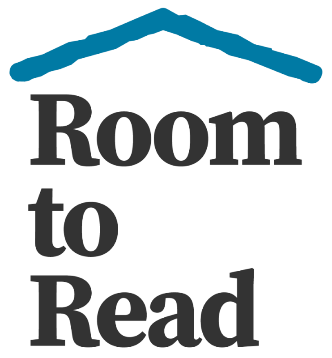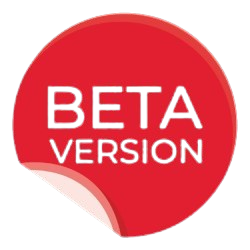
SOW - for hiring an agency to conduct a Baseline Assessment for the Boys’ Life Skills Test Program in Chhattisgarh and Telangana
- Date of Issue: 13-08-2025
- Last date of submission: 17-08-2025
Tender Description
Baseline Assessment for Boy’s Life Skills Test Program in Chhattisgarh and Telangana
Scope of Work
for
Hiring an External Research Agency
July 2025
1. Organizational Overview
Founded in 2000 with the core belief that World Change Starts with Educated Children®, Room to Read (RtR) is creating a world free from illiteracy and gender inequality through education. We are achieving this goal by helping children in historically low-income communities develop literacy skills and a habit of reading, and by supporting girls as they build life skills to succeed in school and negotiate key life decisions. Through a holistic and innovative approach, Room to Read focuses on effecting profound, systemic change within schools in low-income countries during two pivotal stages of a child's academic journey: early primary school for literacy acquisition and secondary school for girls' education. We collaborate with governments and other partner organizations to deliver positive outcomes for children at a scale, to develop literacy skills and a habit of reading among primary school children and ensure girls can complete secondary schools with the skills necessary to negotiate key life decisions. Room to Read has benefited more than 39 million children and has worked in 23 countries and in more than 182,000 communities, providing additional support through remote solutions that facilitate learning beyond the classroom. Room to Read aims to benefit 40 million children by 2025. Room to Read India Trust, established in 2003, operates programs in twelve states: Andhra Pradesh, Bihar, Chhattisgarh, Delhi NCR, Jharkhand, Karnataka, Madhya Pradesh, Maharashtra, Rajasthan, Telangana, Uttarakhand, and Uttar Pradesh. We aim to make educational opportunities and resources more available to disadvantaged children in our mission to break the cycle of poverty and illiteracy one child at a time.
2. Program Overview
Room to Read envisions a world free from illiteracy and gender inequality, where all children have the opportunity to learn and thrive. Our Gender Equality Portfolio aims to equip adolescents—particularly girls—with life skills that foster gender equality, lifelong learning, and informed decision-making. Building on this commitment, Room to Read is introducing the Life Skills for Equality Project (LSEP) for Boys, a test initiative designed to help boys develop critical life skills while challenging harmful gender norms. Gender norms influence boys' behaviours, emotional expression, and relationships from adolescence into adulthood, reinforcing inequalities that shape interactions throughout life. Early adolescence (ages 10–14) is a pivotal period when puberty-related changes influence self-perception and gendered expectations. Without guidance, boys may internalize rigid notions of masculinity, reinforce gender disparities and limit their potential. Through structured interventions, LSEP will equip boys with skills in emotional regulation, conflict resolution, and critical thinking—empowering them to make informed choices about education, careers, and relationships. Schools, as key influencers of gender norms, provide an ideal setting for these interventions. By integrating life skills education into the school system, we can create a lasting shift in attitudes and behaviours, promoting more equitable relationships between boys and girls. The program takes a gender-transformative approach, fostering self-reflection, peer support, and positive role modelling. Boys will be engaged as active stakeholders in building a gender-equitable world. This program will be tested in Chhattisgarh and Telangana with the goal of refining and scaling the model for broader implementation.
2. 1 Program Features:
The Life Skills for Equality Program (LSEP) is designed for long-term sustainability by embedding life skills education into the school system rather than relying on external facilitators. Teachers will be trained to deliver the curriculum independently, ensuring the program continues beyond its initial implementation. Key components of the program include:
- Teacher-Led Implementation – Instead of Room to Read staff, schoolteachers will conduct life skills sessions, ensuring integration within the school environment. Program Facilitators will take on coaching and mentoring roles.
- Structured Curriculum – The program will be implemented from year 2025 to 2027 for students in grades 6 to 8, with 13 sessions per year, each lasting approximately 40 minutes.
- Community Engagement – Parents and caregivers will be engaged through meetings and awareness campaigns, fostering a supportive learning environment at home and in the community.
- Institutional Collaboration – The program will work with government bodies such as SCERT and Gender Cells to integrate its principles into the broader education system, ensuring long-term scalability.
- Targeted Implementation – This test program will reach approx. 250 boys in Chhattisgarh and 250 in Telangana.
With these elements in place, LSEP serves as a scalable, structured approach to life skills education, equipping boys with the tools to challenge gender norms and contribute to a more equitable society. Room to Read India intends to conduct a baseline study prior to implementing the Life Skills for Equality Project (LSEP). The purpose of this study is to assess the existing levels of life skills and gender-related knowledge and attitudes among adolescent boys in the intervention schools and in control/comparison schools. The baseline will establish pre-intervention benchmarks, which will be used to compare with subsequent midline or/and endline data to measure changes over time and evaluate the program’s effectiveness. Through this study, we would also be keen to understand boys’ literacy skills - specifically oral reading fluency and reading comprehension. The objective of understanding the literacy component is primarily to assess whether students are truly able to understand and process the content of adolescent life skills assessment tool, rather than merely guessing responses.
3. Study Objectives
The key objectives of this baseline study are:
- To establish the baseline levels of life skills, gender-related knowledge, beliefs, and attitudes among adolescent boys in intervention and comparison schools.
- To assess the baseline levels of teachers’ self-efficacy, preparedness, and attitudes toward delivering life skills and gender equality content, along with their own life skills and gender-related knowledge.
- To identify barriers that may influence boys’ life skills and gender attitudes, and that may support or hinder the delivery and scale-up of the LSEP.
4. Study Design
This section describes the study methodology, sampling, and various survey instruments to be used to carry out the study. 4.1 MethodologyThe baseline study will follow an intervention–comparison design to assess pre-intervention levels of life skills and gender-related knowledge and attitudes among adolescent boys.
- Intervention Schools: These are schools where the Life Skills for Equality Project (LSEP) will be implemented. These schools have already been identified by the Room to Read.
- Comparison Schools: A set of comparison schools will be selected to closely match the intervention schools in terms of geographic location, school type, size, and socio-economic context. These schools will not implement LSEP during the study period.
This approach will establish benchmarks for key indicators and provide a clear understanding of the existing situation prior to program implementation. 4.2. Sample Details The study will cover a total of 1,000 adolescent boys, with 500 participants each from Chhattisgarh and Telangana. In each state, 250 boys will be selected from schools where the Life Skills for Equality Program (LSEP) is being implemented (intervention group), and 250 boys from matched comparison schools (control group). The intervention sample will be drawn from a total of 13 government schools across both states - 7 schools in Chhattisgarh and 6 schools in Telangana—where LSEP is currently being implemented. In addition to the student sample, the study will also include teacher interviews. The sampling for teachers will include:
- 13 teachers (one from each intervention school) involved in delivering the program.
- 12 teachers from the control group schools, to provide comparative insights into existing attitudes, practices, and readiness.
How to Apply: Proposals are invited from the interested agency for the above assignment and the last date for receiving the proposal is17th August 2025 at procurement.india@roomtoread.org [do not copy anyone from RtR] Kindly submit two separate emails with the following subject lines: EMAIL (1): TECHNICAL PROPOSAL – 2025 Baseline Study – LSEP
- A technical proposal should include a comprehensive company profile.
- The proposal should clearly outline the approach and methodology for executing the study.
- It should highlight the expertise and experience relevant to this field.
EMAIL (2): FINANCIAL PROPOSAL – 2025 Baseline Study – LSEP
- A comprehensive financial proposal should be provided as per the template provided.
- Copies of essential documents, including the registration certificate, GST, PAN Card, MSME Certificate, and other relevant certifications, must be submitted.
Submission terms:
- All agencies are strongly advised to carefully review the Scope of Work (SoW) before submitting their application.
- Technical and Financial proposals must be submitted in two separate emails. Submissions in a single email will not be accepted.
- Incomplete submissions or any deviation from the stated submission guidelines will lead to automatic disqualification.
- Proposals received after the deadline will not be considered.
- Only shortlisted agencies will be contacted and may be invited for a face-to-face or online interaction/presentation.
- The organization reserves the right to accept or reject any proposal, in whole or in part, without assigning any reason.
- Canvassing in any form will lead to disqualification.
For queries, please contact: All queries or requests for clarification must be submitted in writing to Ms. Neha Premchandani at Neha.Premchandani@roomtoread.orgno later than 10 August, EOD. For detailed information, please check the complete version of the SoW attached below.
Job Email ID:
procurement.india(at)roomtoread.org
Download Attachment:
SoW - Baseline Study for Lifeskill program in Boys_LSEP.docx
Download Attachment:
